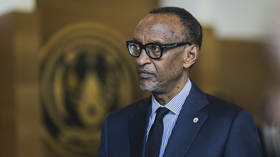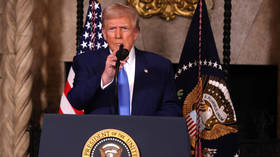US launches cybersecurity bureau

The US Bureau of Cyberspace and Digital Policy (CDP) has begun operating, the State Department announced on Monday. The bureau is subdivided into three branches dedicated to “cyberspace security,” “international information and communications policy,” and “digital freedom.”
Principal Deputy Assistant Secretary Jennifer Bachus, a career diplomat, will lead the bureau until an ambassador-at-large is confirmed to take her place. Bachus previously served in the Czech Republic, Kosovo, France, Vietnam, and Jamaica.
In prepared remarks announcing the launch of the bureau, US State Secretary Antony Blinken said, “Democracies must together answer the question of whether universal rights and democratic values will be at the center of our digital lives.”
During the Trump administration’s overhaul of the State Department in 2017, then State Secretary Rex Tillerson abolished the Office for the Coordination of Cyber Issues, which was created during the Obama administration to handle US diplomatic efforts at negotiating the rules and expectations of cyberspace, assigning cybersecurity responsibilities to the much broader Bureau of Economic and Business Affairs.
The CDP Bureau’s inauguration is one more indicator that cybersecurity remains front and center in international affairs as the US and its allies compete with adversaries like Russia and China.
Just last week, the Russian Foreign Ministry claimed that “anonymous hackers and provocateurs” composing an “army of cyber-mercenaries” sympathetic to Kiev and centered in the United States conduct hundreds of thousands of cyberattacks against Russian government institutions, media outlets, and critical infrastructure, warning of “grave consequences” for those responsible.
Earlier in March, Israeli newspaper Haaretz reported that the “largest ever” cyberattack in the country’s history had taken the websites of its interior, health, justice, and welfare ministries as well as the prime minister’s office offline, while China’s foreign ministry denounced the US as a “hacking empire,” accusing it of using Chinese networks as a “springboard” to launch cyberattacks on Russia and Belarus.













